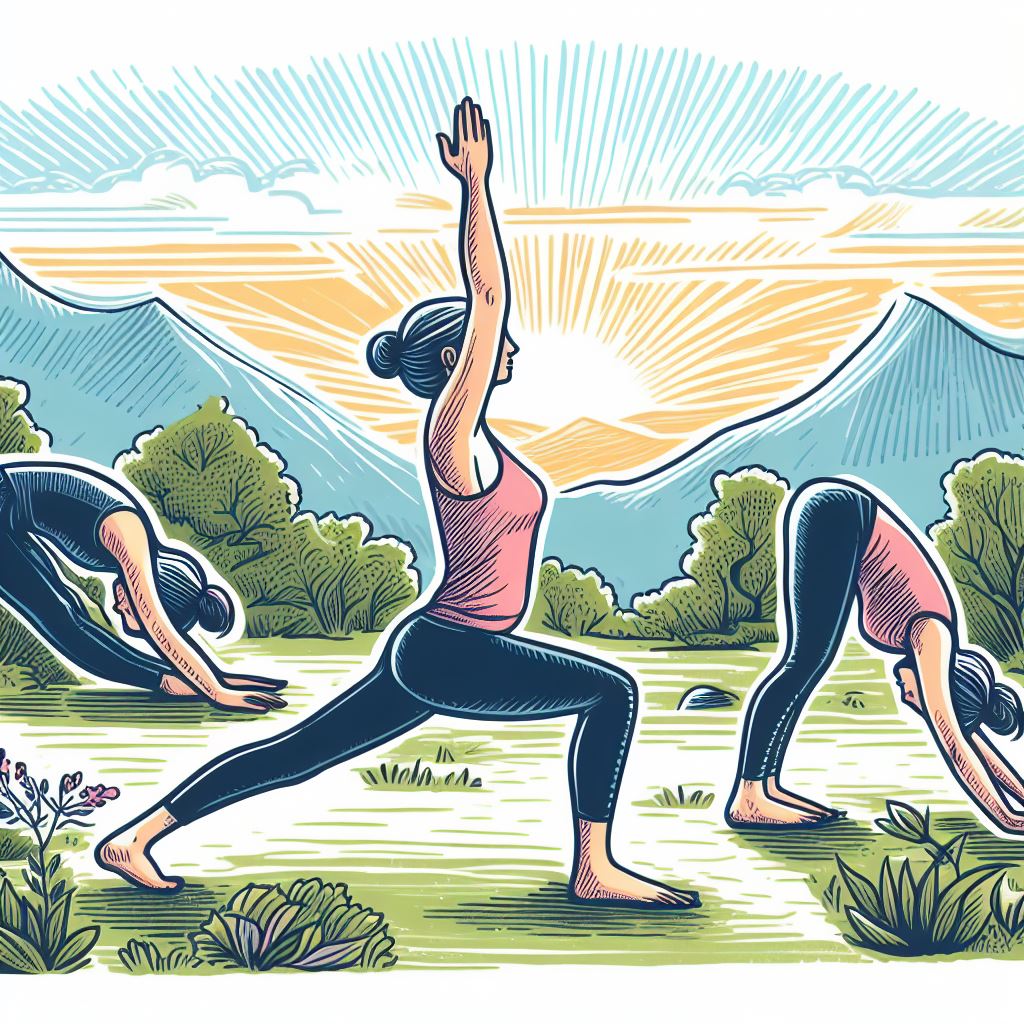Astrology—it used to be something you’d only bring up at sleepovers or maybe whisper about with a close friend. But these days, you can’t scroll through Instagram or TikTok without seeing posts about Mercury retrograde or zodiac sign compatibility. Astrology has gone mainstream, and suddenly, it’s part of our everyday lives. The big question is: Should we be taking it seriously? While some still think of astrology as nothing more than entertainment, many others are using it as a tool for self-reflection, guidance, and even personal growth. So, let’s dive in and explore whether astrology deserves a spot in your daily routine or if it’s just another passing trend.
More Than Just Horoscopes
Astrology has roots in ancient civilizations like Babylon, Egypt, and Greece. Back then, it wasn’t just about figuring out who your soulmate might be or when you’ll get that promotion. It was actually used to understand major life events, time harvests, and even make decisions about war. The Babylonians were some of the earliest people to map out the stars, using them to interpret cosmic patterns. Egyptians adopted these practices too, and from there, astrology spread across different cultures.
In Ancient Greece, astrology took on a more personal touch. Greek philosophers and scholars like Ptolemy developed the systems we still use today, like the zodiac signs and birth charts. What’s wild is that back in the day, astrology was basically considered science. Kings and leaders would seek astrological advice to plan out battles or make political decisions.
But then, over time, astrology and astronomy split ways. Astronomy became the hard science we know now, focusing on the study of celestial bodies. Meanwhile, astrology became more mystical, focusing on how the positions of those celestial bodies affect individual lives.
Now, even though astrology isn’t science in the traditional sense, it’s still around for a reason. People use it for something different—understanding themselves, their relationships, and the world around them.
Why People Are Turning to Astrology for Guidance
We’re living in some chaotic times, and in the midst of all the unpredictability, astrology has become a way for people to find comfort and make sense of their lives. It’s not just about sun signs or horoscopes anymore. People are digging deeper into birth charts, planetary movements, and lunar cycles, and it seems to be offering more than just casual entertainment.
Emotional Support in a Chaotic World
It’s no secret that we live in a fast-paced, often overwhelming world. If it feels like things are out of your control, astrology can provide a sense of order and explanation. For example, if you know Mercury retrograde is coming, it’s almost like you’re bracing for impact—expecting communication mix-ups, technology failures, and travel delays. Somehow, that bit of forewarning feels comforting. Knowing “why” things are happening (even if it’s through the lens of astrology) makes the chaos feel manageable.
Self-Discovery Tool
Astrology has become a tool for self-awareness. People aren’t just looking at their sun sign (the basic “What’s your sign?” question) anymore. They’re diving into full birth charts, analyzing their moon sign, rising sign, and more. By exploring the many layers of their astrological makeup, people are learning more about their personalities, strengths, and weaknesses. It’s like getting to know yourself on a deeper level through a cosmic lens.
Customization and Relevance
One reason astrology feels more relevant than ever is its ability to be incredibly personalized. A birth chart, for example, is calculated based on the exact time, date, and place you were born. This kind of detail feels way more specific than a generic daily horoscope. This kind of personalization can make people feel like astrology is speaking directly to their unique experience.
Cultural Acceptance and Accessibility
In the last decade or so, astrology has made a huge comeback. It’s not something you have to keep secret anymore. Apps like Co-Star and The Pattern, along with social media accounts dedicated to astrology memes, have made it accessible and relatable. You can get a daily reading at the click of a button or laugh about your zodiac sign’s quirks with a friend over a meme. This cultural shift has taken astrology from something that was once seen as “woo-woo” to something fun, accessible, and totally normal to talk about.
The Science vs. Belief Debate: Should We Care If It’s “Real”?
Whenever you mention astrology, there’s always that one person ready to ask, “But is it real?” And let’s be honest—astrology doesn’t have scientific proof behind it, but does that really matter?
Astrology Isn’t Science—And That’s Okay
First things first: astrology doesn’t claim to be a science. Yes, it involves the positions of celestial bodies like planets and stars, but its focus is more symbolic than scientific. It’s more about interpreting the energy or meaning behind these planetary movements than about providing hard, factual evidence. Astrology is not meant to explain how things work on a mechanical level, like gravity or the speed of light, and that’s okay. People still find value in it for different reasons.
Astrology as a Language
Think of astrology like a symbolic language. In the same way that art, literature, or music can convey emotion, astrology uses the positions of planets to interpret emotional or psychological energy. Just because it’s not rooted in hard science doesn’t mean it lacks meaning. You don’t need a PhD to appreciate how art makes you feel, right? Astrology is similar—it gives us a framework to understand ourselves and the world (and sometimes, it just helps us laugh off a bad day).
Placebo Effect? Maybe, But It Works
Even if astrology isn’t based on scientific facts, does that mean it’s not useful? Not really. Plenty of people use astrology to guide their personal and emotional wellbeing, and it works for them. Maybe it’s like a placebo effect—believing in astrology helps people make sense of their lives, and that belief alone can create real effects. Even if you don’t think astrology is “true” in the scientific sense, it still provides comfort, which makes it valuable.
The Power of Confirmation Bias
Of course, there’s always the argument of confirmation bias—where people see what they want to see. It’s easy to focus on the parts of astrology that “fit” you while ignoring the things that don’t.
But this happens in all sorts of areas, not just astrology. People do this with personality tests, social media algorithms, and even relationships. At the end of the day, if astrology helps you, that’s what matters.
Astrology as a Framework for Personal Growth
Astrology isn’t just about predicting the future or determining compatibility anymore. For many people, it’s become a tool for personal growth, helping them better understand themselves and navigate life’s ups and downs. The beauty of astrology is that it offers a framework for self-reflection, allowing us to make sense of our experiences in a way that’s both empowering and deeply personal.
The Birth Chart
One of the most powerful tools in astrology is the birth chart. Think of it as a snapshot of the sky at the moment you were born, showing where all the planets were and how they relate to each other. Unlike a simple horoscope that only looks at your sun sign, a birth chart takes into account your exact time, date, and location of birth to create a highly personalized map of your personality, strengths, weaknesses, and even the challenges you might face.
A birth chart can reveal layers of your personality, from your emotional responses (linked to your moon sign) to how you present yourself to the world (your rising sign). It’s like unlocking a guidebook to your inner world that can help you better understand why you react the way you do in certain situations or why you keep encountering similar obstacles. It can also show areas where you might need to grow or evolve.
Zodiac Signs Beyond Sun Signs
Most people know their sun sign—the zodiac sign that relates to the position of the sun at the time of their birth. But astrology goes far beyond that. There’s your moon sign, which represents your inner emotional life, and your rising sign (or ascendant), which governs how others see you. These are just the tip of the iceberg.
Your Mercury sign shows how you communicate, your Venus sign rules your relationships and values, and your Mars sign determines how you take action. Understanding all these placements can give you a richer, fuller picture of who you are and how you navigate the world. It also helps explain why some parts of a horoscope might resonate while others don’t—there are so many factors at play beyond just the sun sign.
Astrology as Therapy
For some people, astrology works almost like therapy. By recognizing patterns in your birth chart or looking at the current movements of planets (known as transits), you can identify recurring themes or challenges in your life. Let’s say you’re always struggling with assertiveness in relationships. Your chart might reveal that this is a key area of growth for you, based on your Mars placement or challenging aspects between planets.
Astrology gives you a framework to explore these challenges and reflect on how to handle them. It encourages self-awareness and personal responsibility, helping you grow emotionally and mentally.
Cycles and Transits
Astrology isn’t static—it’s dynamic. As the planets continue to move, they interact with the positions of the planets in your birth chart. These movements, called transits, can have an impact on different areas of your life at different times. If you’ve ever heard someone say they’re going through their “Saturn return,” they’re talking about a transit that happens when Saturn returns to the same place it was when they were born. It’s known to bring about major life shifts and challenges, often forcing people to confront their responsibilities or reevaluate their life choices.
While these transits don’t dictate your life, they can give you a heads-up about what kind of energy or themes you might be working through. Think of it like a weather forecast—knowing a storm is coming doesn’t stop the rain, but it helps you prepare. Astrology can give you that kind of foresight, helping you navigate life’s cycles with a little more grace and understanding.
Where Do We Go From Here?
Astrology has made its way into the mainstream in ways that would’ve been unthinkable even a decade ago. And with its growing popularity, it’s clear that astrology is not going anywhere soon. The big question now is: what’s next for astrology?
Astrology’s Growing Influence
Astrology has woven itself into everything from relationships to career advice, and it’s showing no signs of slowing down. People are using astrology to understand everything from friendships to work dynamics. Want to know why you and a coworker clash? You might start looking at your Mars signs to understand your conflict styles.
Dating has become especially influenced by astrology. People are now using astrology as a filter for relationships. You’ll even see dating apps allowing you to search for potential matches based on their sun sign. This trend of integrating astrology into more aspects of life shows that people are using it for more than just fun—they’re finding real value in it.
Astrology and Technology
Technology has taken astrology to the next level. With apps like Co-Star, The Pattern, and AstroMatrix, you can get your entire birth chart mapped out in seconds, along with daily updates on planetary movements and their potential effects on your life. Social media accounts and influencers dedicated to astrology keep us engaged with bite-sized astrological insights, memes, and forecasts.
But it doesn’t stop there. The future might hold even more advanced ways of using astrology, from hyper-personalized birth charts to AI-driven forecasts that take into account not just your birth chart but also the charts of your friends, family, and coworkers. Astrology is being integrated with technology in ways that make it easier and faster to access.
In the future, we could see astrology becoming an even bigger part of daily life, from personalized horoscopes delivered straight to your phone to apps that help you plan your week based on the stars.
Astrology as Part of Spiritual Wellbeing
More and more people are incorporating astrology into their spiritual practice. Whether it’s aligning your routine with the lunar cycle or reflecting on major planetary transits during meditation, astrology has become a tool for mindfulness and spiritual growth. It’s part of a larger movement where people are seeking out new ways to connect with themselves and the world around them. Astrology, with its cycles and patterns, fits perfectly into this kind of reflective, mindful practice.
Whether it’s part of a formal spiritual practice or just something you check every now and then, astrology is giving people a framework to understand life’s ups and downs in a more meaningful way. And as astrology continues to grow in popularity, we’re likely to see it becoming even more intertwined with personal and spiritual wellbeing.
What Happens When We Take It Seriously?
So, what happens if we all start taking astrology seriously? For one, it could become an even bigger part of our culture, influencing everything from personal decisions to workplace dynamics. But on a more individual level, astrology might continue to be a tool for personal growth and reflection. When you use it as a guide—rather than a strict rulebook—astrology has the potential to help you navigate life’s challenges with a little more clarity and purpose.
Astrology has made a home in our modern lives, and for many, it’s not just a trend or a passing hobby—it’s a tool for understanding themselves and the world around them. While it may not be backed by hard science, astrology offers something different: emotional insight, personal growth, and comfort in a chaotic world.
Whether you’re someone who swears by your daily horoscope or just enjoys checking in on your sign from time to time, astrology has earned its place as more than just a fun pastime. It’s up to you how seriously you want to take it—but if you ask me, there’s definitely something there.
















